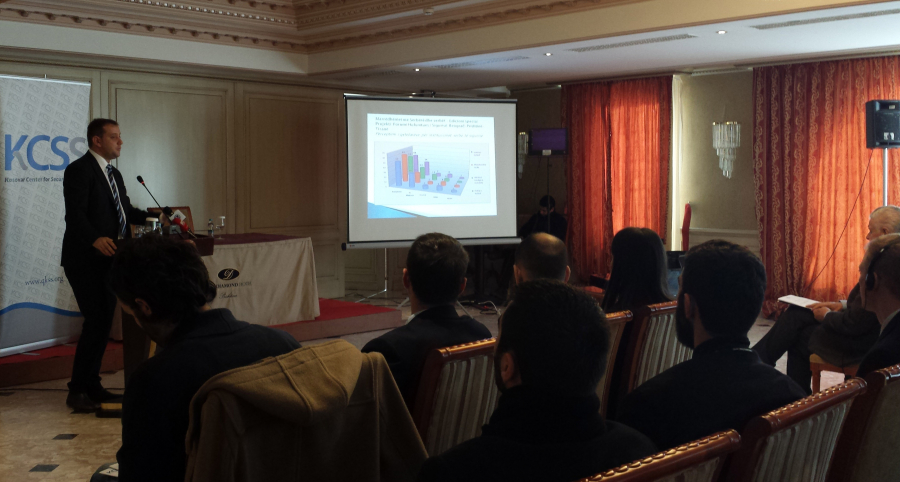Today (12th December 2013), the Kosovar Center for Security Studies (KCSS) launched the 3rd Edition of Kosovo Security Barometer (KSB 3) on a special event attended by diverse audience which included: institutional local and international stakeholders, media, civil society, representatives from foreign diplomatic offices, etc . As a traditional instrument the KSB 3 aimed to provide a brief summary of public perceptions about the security and justice institutions as well as about the risks, threats and economical stability towards Kosovo citizens.

Among the main findings of this edition of KSB are once again the high level of trust among the citizens towards the Kosovo Security Force - KSF (with 67%) and KFOR (with 62%) in comparison to the Kosovo Police (with 43%) or justice institutions (with 23%) and EULEX (with 31%) where the public trust of interviewed respondents was very low. Likewise, the survey highlighted also the deep concerns among the citizens about the corruption. The majority of the respondents consider security and other public institutions as highly corrupted. The only exception with this regards is the KSF where the 65% of respondents thinking that this institution is mainly not corrupted. In the other hand, also more than 50% of the responents considered that economical situation is highly difficult, while more than 80% considered the high level of unemployment as security threat. With this edition of barometer the citizens were asked for the first time also about the personal data protection where more than 55% responded lacked any detailed awareness about this issue. The KSB 3 contained also other important imputes however for more details about this edition of the barometer please check the PDF version of publication uploaded on the KCSS official webpage (see the link bellow).
The purpose of the Barometer is to measure trend of perception of the Kosovo citizens and to highlight their main concerns. Therefore, the aim of the KCSS is to conduct additional advocacy activities within the frame of the KSB in order to push forward the security and justice institutions to improve their performance.
Finally, the KCSS would like to acknowledge the contribution of all researchers who have been involved in collecting sources and drafting the KSB III edition and also to express its gratitude to all stakeholders and other individuals who expressed their interest towards the findings represented by KCSS with KSB - Third Edition.
The project is funded by National Endowment for Democracy (NED).